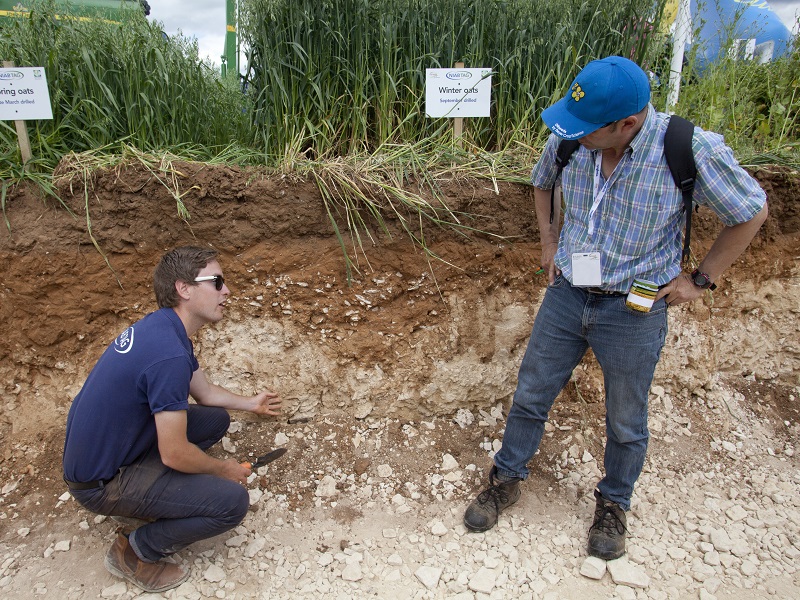Soil is fast becoming recognised as one of our most valuable assets – and a key element in the fight against climate change – so how can farmers maximise its potential?
When growing crops, soil health is at the start of everything, says Vaughn Stansfield, UK manager at UPL. “It’s the foundation upon everything we do and yet it can be the most limiting factor in the chain of crop production when neglected.”
That’s why day two of the Cereals seminars will focus exclusively on soils – covering everything from research into the microbiome to drainage, regenerative farming, and carbon measurement tools. “Healthy soils equate to healthy profits – both from crop production and the trading of natural capital,” explains event organiser Alli McEntyre. “We want to give visitors the latest information and practical tools from researchers, scientists and award-winning farmers.”
Visitors will also be able to get beneath the ground to examine soil structure in the NIAB Soil Pit, and get the latest advice in the new Drainage Demo area.
As seminar sponsor at Cereals, UPL is putting sustainability clearly on the agenda. “As an industry and globally, we are looking to move forward in a sustainable manner, but it needs to be done profitably, and these two things aren’t mutually exclusive,” explains Mr Stansfield.
Focusing on soil health isn’t just about growing better crops: With the changes to farm payments and the evolution of carbon offsetting schemes, it poses multiple opportunities to farmers.
Organisations like LEAF (Linking Environment and Farming) have been working to deliver sustainability for over 30 years so there’s a wealth of experience to draw from. “We are increasingly seeing nature-based opportunities, where nature is core in driving improved soil health,” says Caroline Drummond, CEO at LEAF. “We cannot just look at policy to drive this change –first and foremost there needs to be control of this from a business perspective.”
A good starting point for farmers is to review the past two harvests, advises George Badger, partner at Ceres Rural. “Farm profitability fell by an estimated 14% last year, highlighting the vulnerability of break crops failing. And with 2021 bringing a 12% or more reduction in Basic Payment, this transition period could be a window for on-farm changes.
“All farmers acknowledge there is room for improvement in their business, and our advice is to focus on improving soils and their resilience over the next five years and beyond.”
This could be through cropping choices and rotation, such as the recent resurgence in spring wheat plantings. “A shift to a seven or eight year rotation, with half of this wheat, but also including beans, grass and fallow, could stack up in terms of weed control,” explains Mr Badger.
Soil health can also be improved through creating a system less reliant on inputs – but this needs to be done without reducing productivity. “Changing cultivation practice is not as simple as buying a direct drill – a key lesson on heavy land is taking time to adapt it and not shocking the system,” he adds.
Cover crops have their own benefits in terms of soil structure, water and nutrient retention, as well as helping to build organic matter. However, cover crops may not work for every farm, every year.
One tricky aspect of exploring how best to improve soils is that no farm can afford to have a season of crop failure through unsuccessful experimentation, he says. “So the most successful will be those who implement trials and have a good team involved, as well as those who knowledge share and learn from their neighbours.
Though the younger generation are not always in charge of on-farm decision making, they are in a great position to encourage the adoption of new practices, says Tom Pope, NFYFC Agri chairman. “They are generally very adaptable, open to change and technologically savvy. They are also happy to focus on their cost of production and benchmark to build their businesses. However, they need to ensure they use expert advice to help improve their soils as this is a vital aspect of the larger picture.”
- The Cereals Event will be held in Lincolnshire on 30 June – 1 July 2021 and will comply with all required biosecurity measures against Covid-19. For more information or to register for tickets visit cerealsevent.co.uk.





